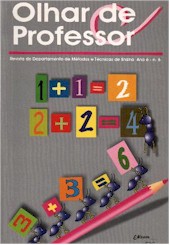(Re) construindo conceitos e consensos: um olhar sobre a violência doméstica
Conteúdo do artigo principal
Resumo
O texto discute as tensões pelas quais passam as instituições sociais – família e escola – que enfrentam desafios a fim de definir o seu lugar no tempo-espaço que se deslocam sem parar e com intensidade crescente, algumas vezes parecendo que a ação anteceda à conceituação. Aborda, ainda, a família contemporânea, que longe de ser um fim em si, tornou-se uma instituição onde os direitos e os desejos subjetivos levam a melhor sobre as obrigações categóricas. Neste contexto, encontra-se o grande paradoxo pós-moralista: proliferam as associações de proteção a infância e ao adolescente seja pela sociedade civil ou pelos poderes públicos e, ao mesmo tempo, cresce a violência exercida contra os filhos. O debate em torno dessa questão recomenda a necessidade de que as associações/parcerias/projetos contemplem iniciativas capazes de melhorar as condições de vida das famílias, considerando-se que o investimento na educação é o melhor caminho para reduzir todo tipo de violência doméstica.
Downloads
Detalhes do artigo
Autores que publicam nesta revista concordam com os seguintes termos:
a) Os autores mantêm os direitos autorais e concedem à revista o direito de primeira publicação, com o trabalho simultaneamente licenciado sob a Creative Commons Attribution License Atribuição 4.0 Internacional (CC BY 4.0) que permite o compartilhamento do trabalho com reconhecimento da sua autoria e publicação inicial nesta revista.
b) Os autores são autorizados a assinarem contratos adicionais, separadamente, para distribuição não exclusiva da versão publicada nesta revista (por exemplo, em repositórios institucionais ou capítulos de livros), com reconhecimento da sua autoria e publicação inicial nesta revista).
c) Os autores são estimulados a publicar e distribuir a versão onlline do artigo (por exemplo, em repositórios institucionais ou em sua página pessoal), considerando que isso pode gerar alterações produtivas, bem como aumentar o impacto e as citações do artigo publicado.
d) Esta revista proporciona acesso público a todo o seu conteúdo, uma vez que isso permite uma maior visibilidade e alcance dos artigos e resenhas publicados. Para maiores informações sobre esta abordagem, visite Public Knowledge Project, projeto que desenvolveu este sistema para melhorar a qualidade acadêmica e pública da pesquisa, distribuindo o OJS assim como outros softwares de apoio ao sistema de publicação de acesso público a fontes acadêmicas.
e) Os nomes e endereços de e-mail neste site serão usados exclusivamente para os propósitos da revista, não estando disponíveis para outros fins.
______________

Este obra está licenciado com uma Licença Creative Commons Atribuição 4.0 Internacional.

